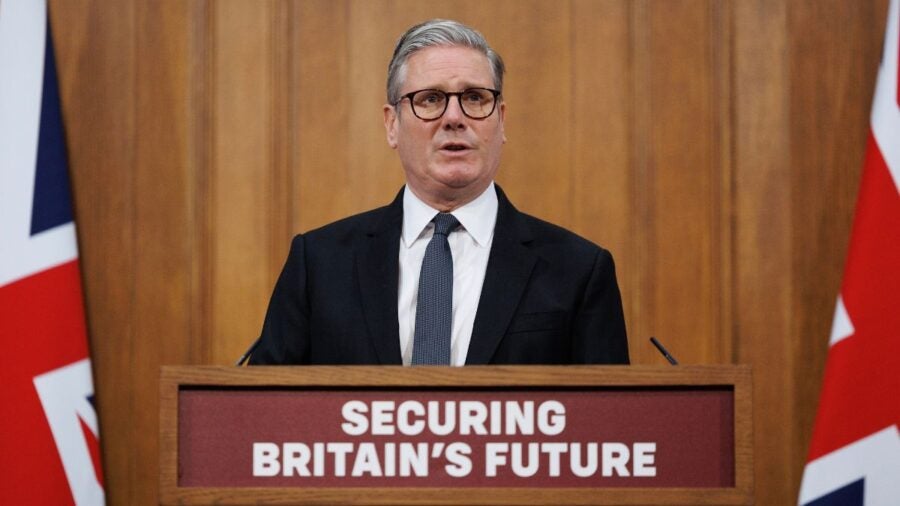
Following a surge in support for Reform UK, which promotes anti-immigration policies, Labour has prioritised tightening rules on immigration. UK Prime Minister Keir Starmer pledged on Monday to overhaul the system to encourage companies to “back British workers”, rather than relying on overseas talent.
The government has suggested that the proposals in its immigration white paper could reduce the number of low-skilled and care workers coming to the UK by 50,000. Net migration into the UK was 728,000 in the year to June 2024, according to provisional figures from the Office for National Statistics.
Under the changes, the government will extend the amount of time migrants must spend in the UK before applying for settled status, from five years to 10. The social-care visa, which allows care workers to come to the UK to fill labour shortages, will be ended.
Migrant workers and their dependents will also face tougher English-language requirements, and those seeking a skilled-worker visa will need at least an undergraduate university degree, not just an A-level or equivalent, which is the current minimum requirement.
However, there will be fast-track routes into the country for migrants with “high talent”, such as doctors, nurses, engineers and AI researchers. A limited number of refugees will also be allowed to apply for employment through sponsored-worker routes.
Additionally, the immigration skills charge, which is paid by employers when sponsoring overseas workers’ visa applications, will be increased by 32%. Plus, the government suggested it will restrict skilled-visa sponsorships for employers that are not committed to increasing domestic skills training.
Starmer says the changes will deliver lower net migration, strengthen domestic skills, help to repair the social contract and reduce the number of industries that “seem almost addicted to importing cheap labour”.
But business groups have warned that the immigration crackdown will exacerbate skills shortages and hamper economic growth.
Employers left ‘fearful’
Neil Carberry, the chief executive of the Recruitment and Employment Confederation, says: “This major intervention in the labour market will leave many employers fearful that the government, in tackling concerns about immigration, is going after the wrong target. Being open to skilled workers, who can support businesses investing here, is essential. And we should remember that the private sector has not been the source of the recent growth in [immigration to the UK].”
Alex Hall-Chen, principal policy advisor for skills and employment at the Institute of Directors (IoD), agrees that the announcement will raise concerns among employers and limit their ability to fill “urgent skills gaps”.
This won’t tackle the underlying causes of why employers recruit so many overseas workers
Three in 10 business leaders surveyed by the IoD cited skills shortages as a major factor holding back business growth. Businesses in the social care and construction sectors, which are heavily reliant on overseas workers, have said they will struggle to adapt to the changes.
Ben Willmott, head of public policy at the Chartered Institute of Personnel and Development, says immigration reform must come alongside a new skills strategy to ensure employers can still access the talent they need.
“We won’t tackle the underlying causes of why employers recruit so many overseas workers until we reform our flawed and underfunded vocational-education and training system and offer better career guidance to young people,” he says.
He encourages companies to work with education providers and invest in strategic workforce planning, training and development to ensure the new immigration rules don’t exacerbate skills shortages.

Following a surge in support for Reform UK, which promotes anti-immigration policies, Labour has prioritised tightening rules on immigration. UK Prime Minister Keir Starmer pledged on Monday to overhaul the system to encourage companies to “back British workers”, rather than relying on overseas talent.
The government has suggested that the proposals in its immigration white paper could reduce the number of low-skilled and care workers coming to the UK by 50,000. Net migration into the UK was 728,000 in the year to June 2024, according to provisional figures from the Office for National Statistics.
Under the changes, the government will extend the amount of time migrants must spend in the UK before applying for settled status, from five years to 10. The social-care visa, which allows care workers to come to the UK to fill labour shortages, will be ended.





